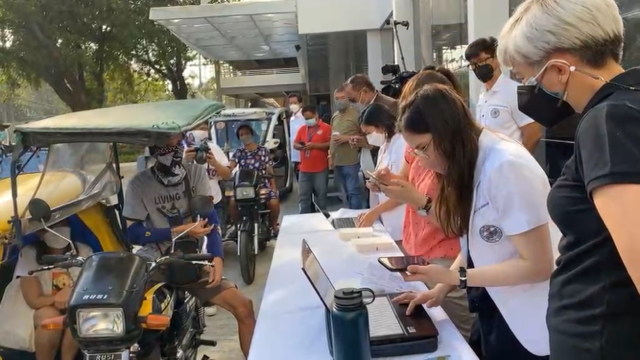Expert urges single COVID-19 booster shot for now

Infectious disease expert Dr. Rontgene Solante on Tuesday said it was important that the public receive just one COVID-19 booster shot after their primary vaccine series as there was yet no data to prove that boosters have to be administered every three to six months.
While Israel's Health Ministry reported on Sunday said that a fourth vaccine dose or second booster shot given to people over 60 made them three times more resistant to serious illness than thrice-vaccinated people in the same age group, and while Solante conceded that there was validity to the Israeli report, the matter needed to be studied further.
“Ang importante diyan na at this point in time, isang booster lang muna ang tatanggapin natin because there are no data na ang booster binibigay every three months or every six months. So, hindi natin alam kung ano maidudulot nito sa immune response,” he said.
(The important thing is that at this point, people should only accept one booster first because there is yet no data on boosters given every three to six months. So, we don’t know what it will do to the immune response.)
Solante however emphasized that current data on single booster shots was “robust,” and it showed that boosters could give better protection when administered after the two primary vaccine doses.
Currently, the Department of Health (DOH) is administering third doses to senior citizens and the immunocompromised, while booster shots were also being given to those who completed the three to six-month requirement after receiving their second dose.
The government reported on Tuesday that 51 million Filipinos were fully vaccinated against COVID-19, with 6.4 million receiving their booster shots.
80-95% efficacy rate
Likewise, vaccine expert Dr. Lulu Bravo reported that individuals fully vaccinated against COVID-19 should get a booster shot to keep the efficacy rate of vaccines at 80% to 95%.
Bravo, said studies in the United Kingdom, Qatar, and by the United States Center for Disease Control showed favorable results on individuals who got a booster shot after getting a two-dose vaccine against COVID-19.
"The two-dose Pfizer-BioNTech, AstraZeneca, and Moderna's efficacy rate of 90%, in six months, goes down to 50%. With a booster, it goes back up to as much as 80% to 90%. It could even go up to 95%, 93%," Bravo said.
"The booster could really improve the efficacy of the vaccine two weeks after [getting] the booster. We need the booster."
Furthermore, booster shots had also been proven to be effective in thwarting more transmissible Omicron variant infections.
"Those who got the third dose, the efficacy rate reaches 90% against Omicron," Bravo said.
"The cumulative number of cases was also lower on those who got the third dose. This is evidence that having a third does is a good way to fight COVID-19."
Solante added said that the Astrazeneca booster can generate an increase in antibodies against other COVID-19 variants, as studied by the Vaccine Expert Panel.
“‘Yung data on Astrazeneca, pwede siyang i-boost ang nabakunahan na ng Astra, Pfizer, at Sinovac. The antibody response is really higher than that nung dalawang dose lang ibinibigay with an addition of a dose of an Astrazeneca booster shot,” he said.
(The data showed that Astrazeneca can be used as a booster for those who got vaccinated with Astrazeneca, Pfizer, and Sinovac. Astrazeneca boosters can give a better antibody response than those who only got two doses.)
Natural immunity vs vaccines
Solante meanwhile urged the public not to deliberately get COVID-19 to obtain natural immunity as vaccines were still the more effective tool against the viral disease.
“‘Pag ma-infect ka, hindi natin sigurado kung mag-develop ka ba ng severe so mas delikado ‘yan. Pangalawa, ‘yung immunity after infection, ‘yung antibody niyan, hindi gaanong katagal magiging protective kumpara doon sa meron kang bakuna,” he said.
(When you become infected, we would not be sure if you will develop severe symptoms. That is more dangerous. Second, the immunity or antibodies developed after infection will not be as protective compared to getting vaccinated.)
“Hindi din siya magdulot ng proteksyon against reinfection with another variant especially ‘pag ‘yung antibody mo from that infection will also wane off after second month or third month,” he added.
(Neither would it protect against reinfection with another variant, especially if your antibodies from that infection will wane off after two or three months.)
Solante stressed that it was important for people who got infected with COVID-19 to still get vaccinated after recovery. — DVM, GMA News




